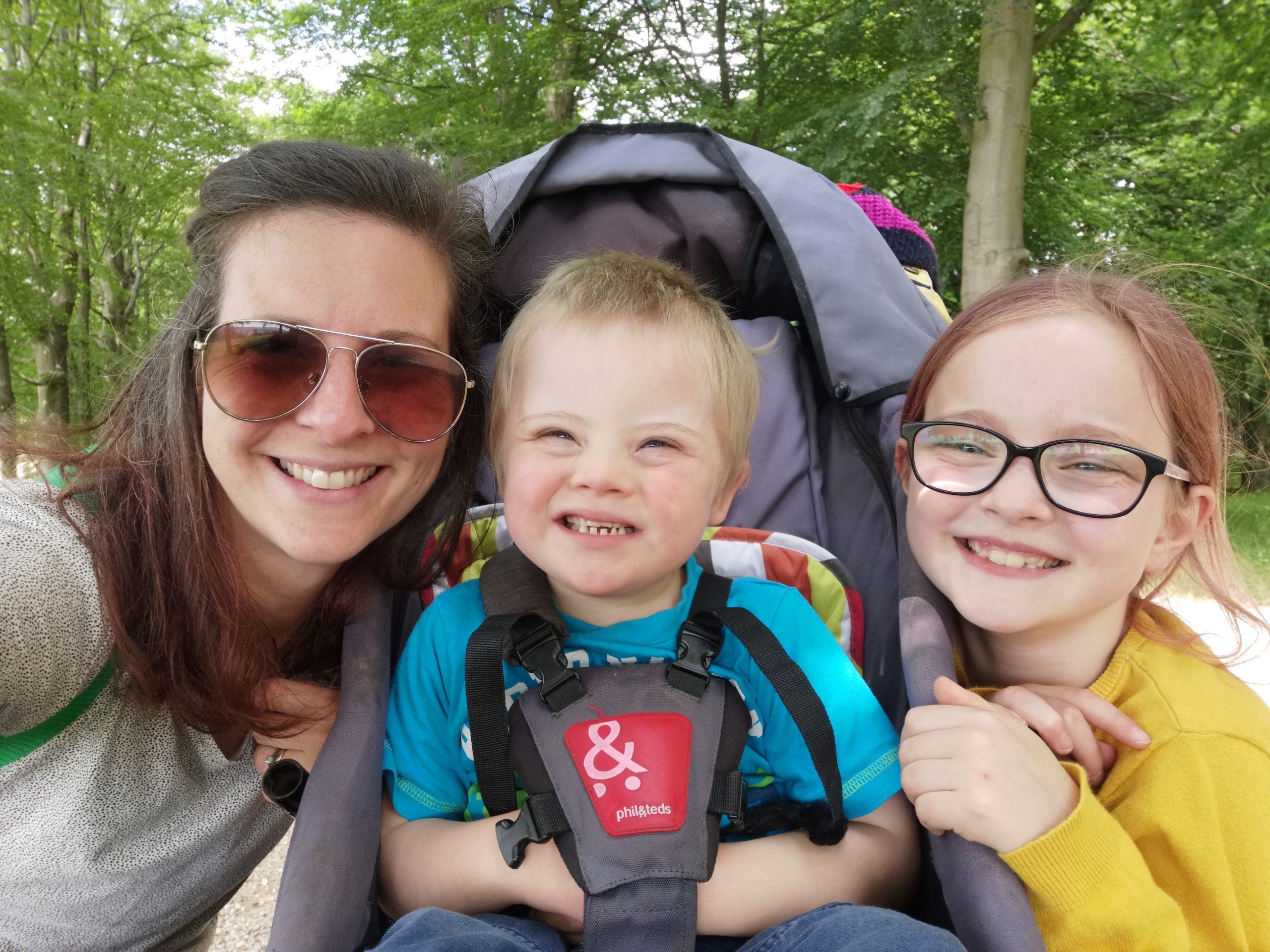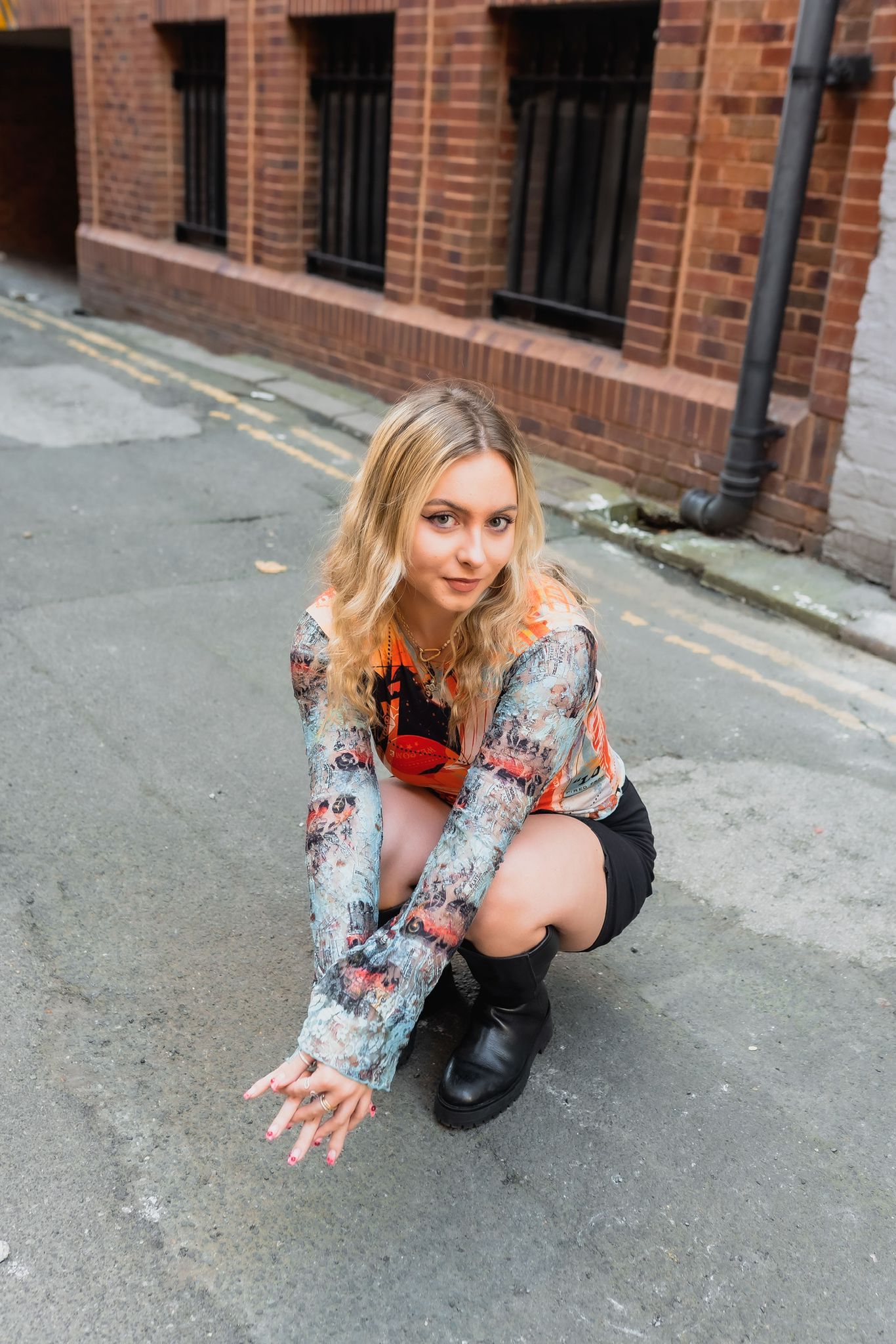Liam and Amos both have an extra chromosome. It’s just one of the many extraordinary things about them.
Liam Froggatt has so many social media accounts his mum can’t keep up.
He uses them to post about his hobbies: dancing, football, horse riding, and mountain biking, to name just a few.
As well as these clubs, which have been side-lined during the pandemic, 16-year-old Liam has a purple belt in Taekwondo, and a modelling contract.
He also has an extra chromosome.
It hasn’t been long since people with Down Syndrome were resigned to lives in care; in the 1960s they were institutionalised from birth, and while it’s been an uphill battle away from that point, Liam’s mum Lucinda says the family have never faced negativity as a result of Liam’s condition.
Positivity emanates from Liam and Lucinda as they fit a Zoom call into their busy Saturday evening, recalling how Liam has become an ambassador for Wouldn’t Change A Thing, a charity which is doing away with old-school perceptions of Down Syndrome.
In his new role, Liam will show the world that Down Syndrome doesn’t have to be a barrier to achieving anything. Post-Covid, he hopes to continue walking runways at fashion shows, and will ride his favourite horse, Bailey, for team GB in the Special Olympics.

Liam riding Bailey
Lucinda feels people are very accepting of difference these days.
“When I was at school, if you wore glasses or a hearing aid or had braces, your life wasn’t worth living. Now you’d be the coolest kid on the block.
“Having said that, we didn’t have children with special needs in our schools.”
Something that seems universally acknowledged among the Down Syndrome community is that the positive shift in attitudes is largely down to representation – seeing people with Down Syndrome living their lives to the max.
But what’s the most important thing for people to know about the 40,000 people with Down Syndrome who live in the UK?
“I think, just give them the opportunity and let them have a go at things, and don’t stereotype and say, well because they’ve got Down Syndrome, they won’t be able to do it.
“If Liam has wanted to have a go at something, he’d have a go at it. There’s not much he hasn’t done.”

Liam is an ambassador for Wouldn’t Change A Thing
In the UK, there is a conflict between advocacy groups trying to change the conversation around Down Syndrome and a recent rollout of pre-natal NIPT testing, which screens a blood sample from a pregnant woman to test for a range of genetic conditions, including Down Syndrome.
The tests are being offered free on the NHS to women with a higher chance of carrying a foetus with a chromosomal condition, but can also be accessed in private clinics.
They are causing controversy in the Down Syndrome community, as many fear an increase in terminations and feel people with Down Syndrome have been left out of the conversation.
Bess Popplewell didn’t know her son, Amos, had Down Syndrome until four days after he was born. She can’t imagine her family of four without him.
Amos is five now, and runs into school every morning because he loves it so much, so excited he forgets to say goodbye.
He’s learning the names of his school friends and his teachers, and his big sister is his favourite person in the world.
“Down Syndrome has never been something we’ve been afraid of, something we’ve not wanted in Amos,” Bess says.

Amos with his dad
Bess is the treasurer at Sheffield Down Syndrome Support Group (SHEDS). In this voluntary role, she operates under the approach that “It’s the unknown that’s scary, not the Down Syndrome.”
“Down Syndrome is seen as this big thing, and actually it’s just a collection of different conditions that are more likely to occur if you have the extra chromosome.
“It seems scary, but actually, it’s the heart conditions and the respiratory problems and the sleep apnoea. The things that actually do occur in other people.”
“Actually it was when Amos was having epileptic seizures that I was like, I don’t like this, this is not what I want. This is the bit that’s upsetting me and hurting my child. It’s not the Down Syndrome.”
More positivity is needed to remedy the fear surrounding Down Syndrome, says Bess.
“At Sheds, we want to get in touch with families from a really early stage and say hey, congratulations, you’ve got a baby.
“Because so often it depends on who’s on duty when you get the diagnosis as to whether you’re celebrated because you’ve got a new baby who happens to have Down Syndrome or whether it’s oh, I’m sorry. And there is nothing to be sorry about here.”
“We don’t gloss over the difficult bits at all. We understand there is a high chance your child will have heart surgery within a few days of being born.
“There’s no point in saying that’s not going to happen, but we also want to kind of share with families, especially newer families, that we’ve been there and we can support you and make it feel less scary.”
Bess doesn’t want to dwell on the controversy surrounding the termination of pregnancies due to Down Syndrome, but notes her sadness at a recent Emmerdale storyline where a couple terminate a pregnancy after finding out the unborn child had the condition.
The storyline was widely criticised and hailed as “insensitive” by viewers at the time.
Bess feels it was a missed opportunity to challenge an outdated message.
“Had they continued that pregnancy, they could have had an actor with Down Syndrome and that would have been really positive representation.
“There definitely needs to be a call for these platforms to really think about the damage they can do.
“Anyway they’ve done it now. There’s nothing we can do to undo that. As a community, we’ll just have to work a little bit harder to make that narrative positive.”
She’s among other advocates currently fighting for termination rates to be in line with the national rate. Currently, foetuses with Down Syndrome can be terminated up to 40 weeks.
Bess is used to people telling her they don’t know how she does it, but advocating for Amos and others like him has become a “purpose.”
“I don’t sit at home thinking, gosh, I just want a day off advocating.
“Every evening I just sit with Amos as he’s going to sleep. And I’m just like, actually, you’ve given me a different life than I thought I would have, but it’s not a bad life. This life is really important.”
“A child with Down Syndrome will bring so much to your family. Even if they can’t talk or do what other children are doing, they bring so many other things.
“They change your life. Even if it’s only for a short while they change your outlook on life quite significantly.”




